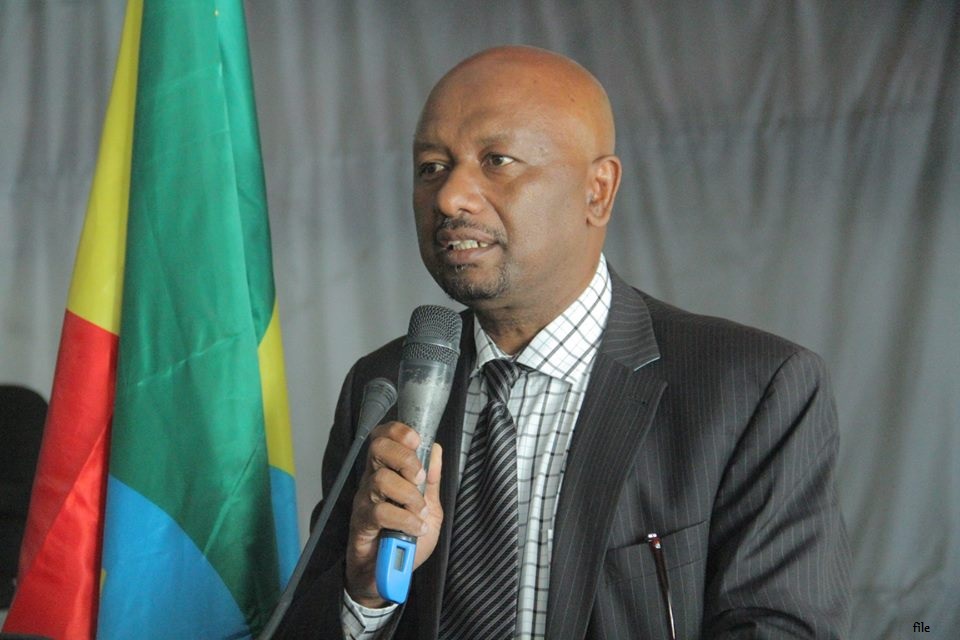High Resolution Information, Early Warning Pivotal to Mitigate Climate Risk in the Horn - ENA English
High Resolution Information, Early Warning Pivotal to Mitigate Climate Risk in the Horn

Addis Ababa May 27/2019 Countries in the Horn of Africa need to focus on high resolution information both in time and space in order to manage and mitigate climate challenges, Water, Irrigation and Energy Minister Sileshi Bekele said.
Countries of the Greater Horn of Africa need to focus on high resolution information both in time and space in order to manage and mitigate climate challenges, Water, Irrigation and Energy Minister Sileshi Bekele said.
The 52nd Greater Horn of Africa Outlook Forum (GHACOF) under the theme “Mitigation of Climate Risks for Resilience Building” kicked off today here in Addis Ababa.
In his opening remark, Engineer Sileshi said “there is no development without understanding weather and climate and use of information.”
He added that the forum is convened a time of concern for impacts of climate variability and climate change have reached at national and international levels.
Stating that an increasing trend in frequency, intensity and severity in droughts and flood are being observed, the Minister pointed out “impacts of climate variability and change also aggravate conflict linked to competition over natural resources.”
Speaking of the sever impacts, Sileshi said “Low level of reservoirs, particularly in the Southern part of Ethiopia is causing disruption in terms of energy generation and as a consequence we are having some level of shading electricity after many years of occurrence of this kind of situation."
Occurrences of weak El Nino and combined with cyclones in the Indian Ocean resulted in low level of rainfall in the region, he added.
National Meteorological Agency (NMA) Director-General, Fetene Teshome said the Greater Horn Africa is highly vulnerable to climate variability and change as well as natural disasters.
Agriculture and water resource sectors continued to face major challenges, he said and added “rural livelihoods remain extremely vulnerable to weather and climate variability as food production is mainly rain-fed in developing world.”
Stating that there are new challenges ahead, Fetene pointed out “more than ever, the meteorological community has to advise decision makers when the adverse events are going to emerge.”
The Director-General called upon meteorologists and climate scientists to support the effort of safeguarding of lives and property through the use of the state-of-art of climate prediction system and communicate the end products to users in appropriate lead time.
IGAD Climate Prediction and Applications Center (ICPAC) Director, Dr. Gulied Artan said the forum, by bringing together countries that have common climatologic characteristics, ensures consistency in the access to and interpretation of climate information.
Mentioning the need to mainstream climate services in key regional socio-economic activities to climate proof them, Artan added “the livelihood of the people of the region are interconnected in countless ways.”
He added that ICPAC will continue to innovate and improve constantly by making a deliberate effort to deliver better climate services to member states in the upcoming years.